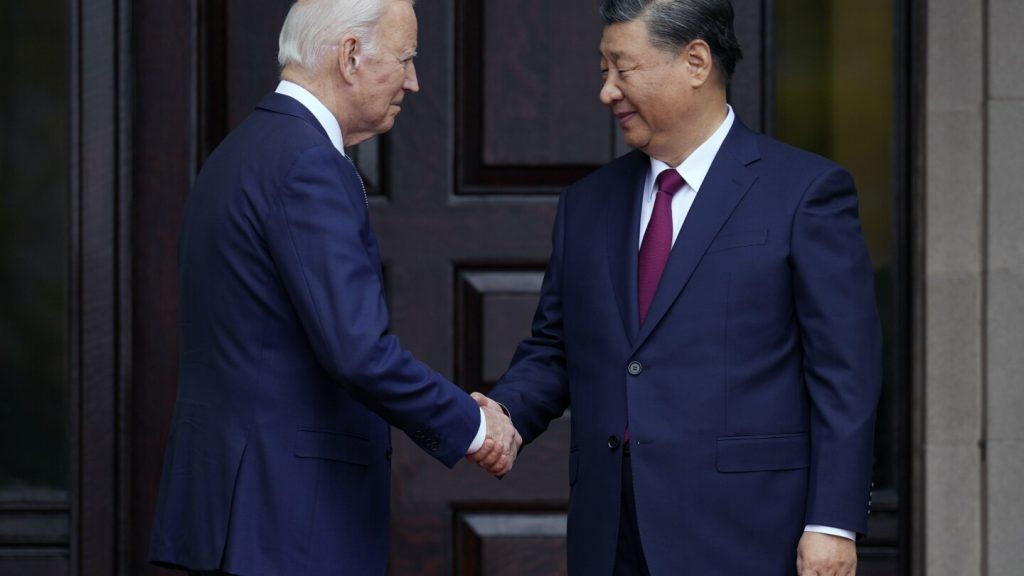The U.S. and China held closed-door talks in Geneva to discuss their national approaches to artificial intelligence technology. The meeting, agreed upon by Presidents Joe Biden and Xi Jinping in 2023, aims to establish a dialogue between the two countries on the impact of AI on various aspects of society. U.S. experts believe that the meeting will provide insight into China’s approach to AI, as the country has been relatively secretive about its use of the technology. The focus of the talks is on the potential risks of AI being weaponized or abused, particularly in the form of deepfakes for disinformation campaigns.
The meeting in Geneva, a hub of international diplomacy, is the first under an intergovernmental dialogue on AI established during a meeting between Xi and Biden in San Francisco. The U.S. government is looking to regulate AI to balance its economic benefits with potential risks, while also fostering growth in the sector. On the other hand, China has been cautious in its deployment of AI, possibly due to concerns about its military and surveillance implications under the ruling Communist Party. U.S. officials plan to discuss measures to mitigate risks associated with AI by collaborating with leading companies in the sector and implementing safety tests for AI products.
The focus of the discussions is on the global implications of AI technology, with both the U.S. and China recognizing the mutual risks involved in its misuse. The meeting is seen as an opportunity for the two countries to establish a common understanding of the challenges posed by AI and to explore ways to address them collaboratively. While the meeting may not yield immediate results, it sets the stage for future cooperation and dialogue on AI-related issues. Both sides are expected to emphasize the importance of responsible AI development and deployment to ensure the technology benefits society without causing harm.
Experts in the field, such as Jason Glassberg from Casaba Security, emphasize the importance of addressing the risks associated with AI, particularly in the context of emerging threats like deepfakes. The potential for AI to be weaponized or used for malicious purposes poses a significant challenge for both the U.S. and China, highlighting the need for dialogue and cooperation on regulating the technology. By engaging in discussions on AI, the two countries can work towards establishing norms and guidelines for the responsible use of AI, safeguarding against potential abuses and ensuring that the technology serves the greater good.
The meeting in Geneva comes at a time of increasing global competition and rivalry between the U.S. and China, with AI playing a key role in shaping future geopolitics. Both countries are investing heavily in AI research and development, recognizing its transformative potential across various sectors. By engaging in dialogue on AI, the U.S. and China have the opportunity to address common challenges and create a framework for international cooperation on regulating and harnessing the power of AI. The outcome of the talks could set the stage for future collaboration between the two countries, paving the way for a more secure and responsible AI landscape globally.
In conclusion, the U.S.-China talks in Geneva on artificial intelligence represent a crucial step towards establishing a common understanding and approach to the technology. By engaging in dialogue on the risks and benefits of AI, the two countries can work towards developing regulations and guidelines that promote responsible AI development. The meeting serves as a platform for future cooperation and collaboration on AI-related issues, setting a precedent for international engagement on addressing the challenges posed by emerging technologies. As AI continues to reshape societies and economies around the world, it is essential for global powers like the U.S. and China to work together to ensure that the technology is used ethically and for the greater good.


